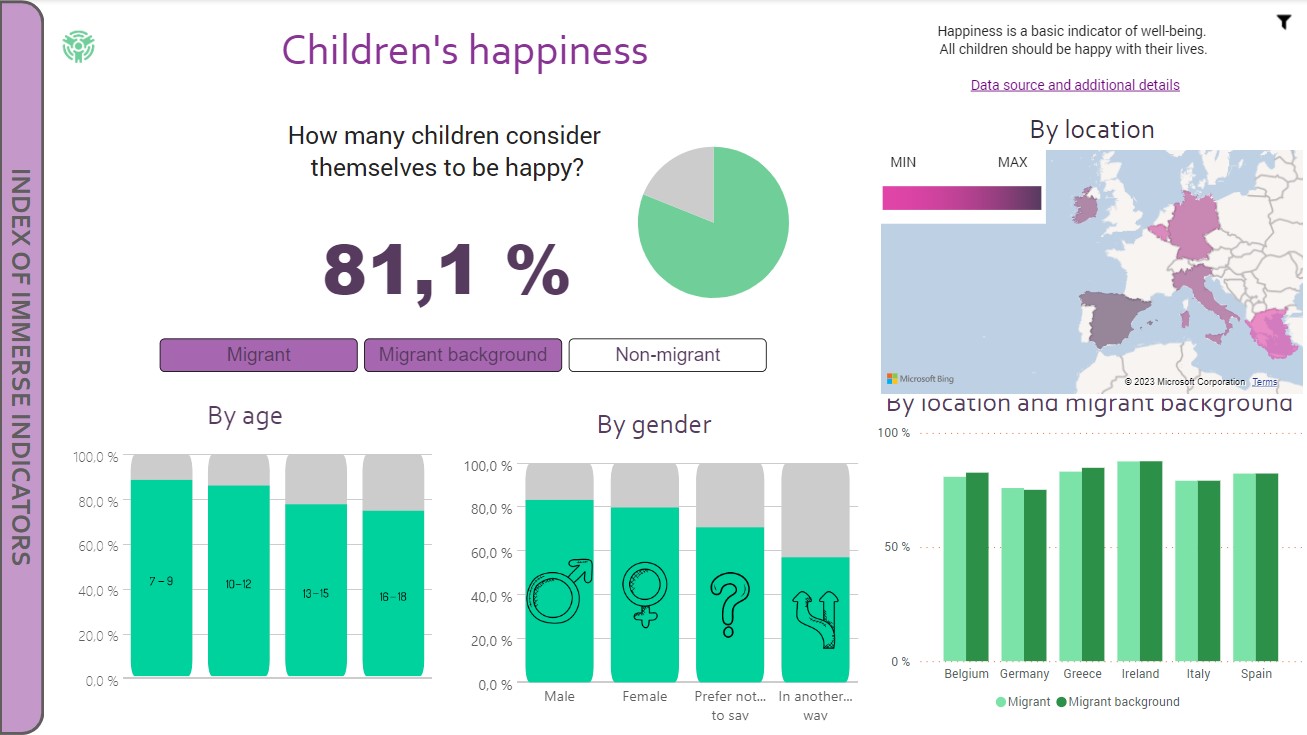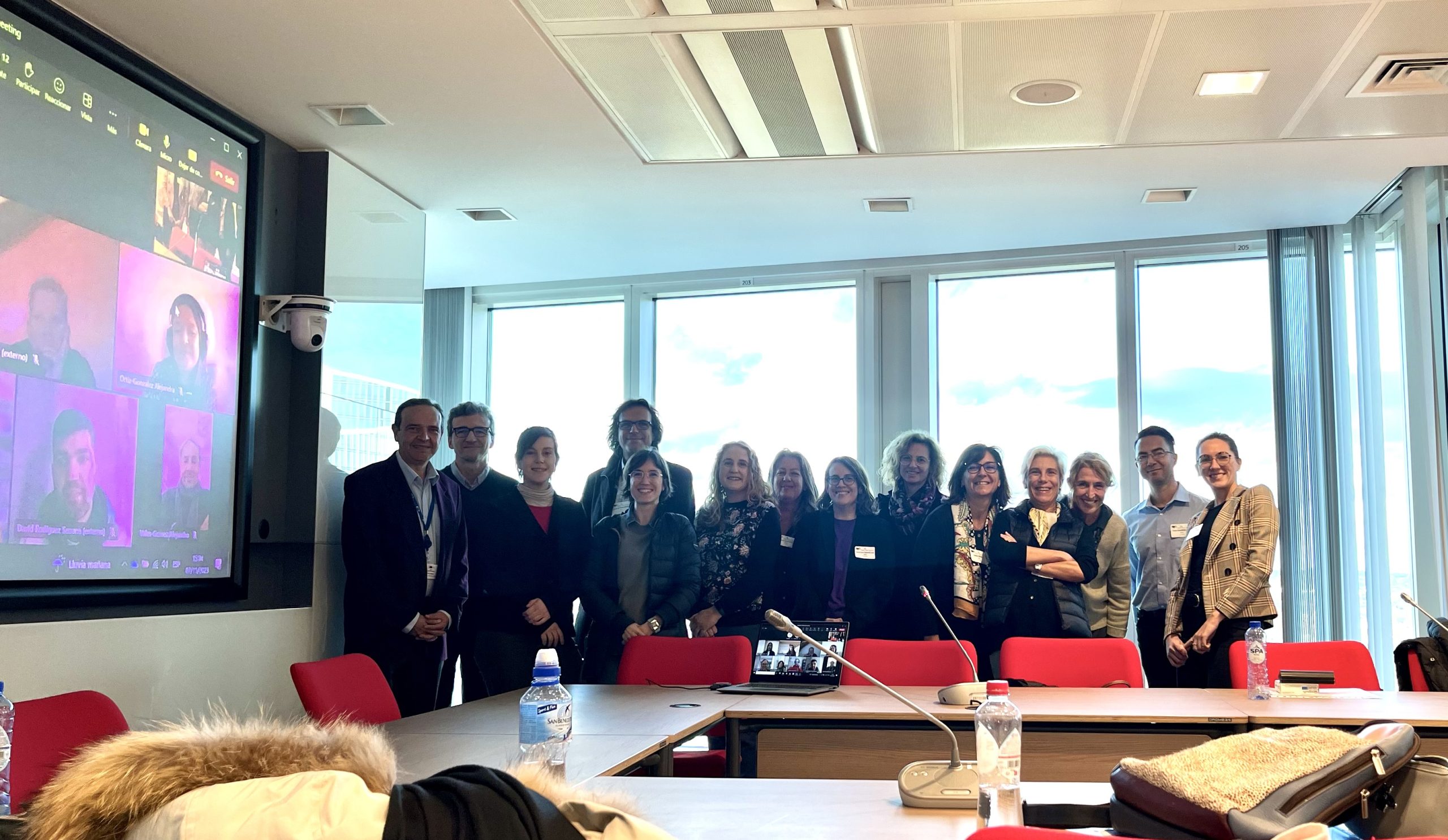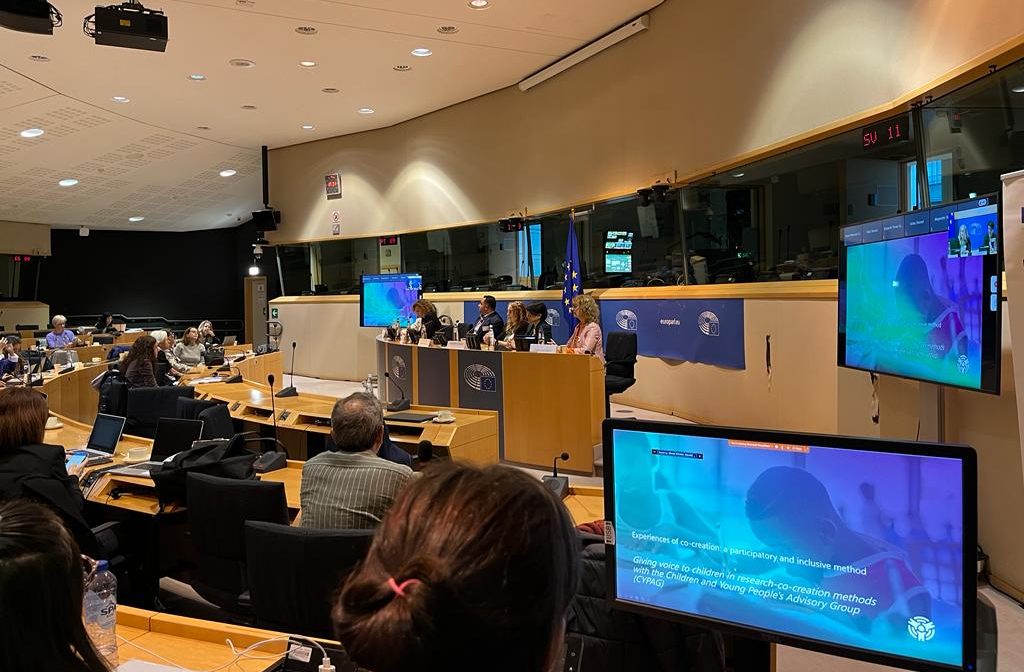Description
The project was created out of the need to build an inclusive atmosphere in the schools for all children by training teachers on how to deal with pupils having a migrant background and teach pupils the values of empathy, tolerance and acceptance towards the others. The objectives set for this project were: to provide a preparation to the partner schools in order to respond to migrant pupils inclusion, to raise awareness of the challenges faced by immigrants and refugees, and to contribute to the development of policy and good practice exchange regarding inclusion of the migrant population. It was implemented from 01-09-2017 until 31-08-2019 in Greece, the Netherlands, Belgium, Italy, Spain and Portugal. The Coordinator of the project was the 6th Primary School of Egaleo (Athens, Greece) and the consortium consisted of Maastricht Graduate School of Governance, GO! Basisschool Schaarbeek Hendrik Conscience, Istituto Comprensivo Statale "Gianni Rodari", Associação Jardim Escola João de Deus and Maristes Sants Les Corts Fundació Champagnat. It was a two-year Erasmus+ Strategic Partnerships for school education (cooperation for innovation and the exchange of good practices) granted by the Hellenic National Agency via the European Commission.
- Children maintain their cultural identity while adopting new cultural values and intercultural competences
- Children's life satisfaction / happiness
- Children's sense of belonging
- Friends and peers (bridges)
- Friends and peers (support)
- Institutions
- Teachers
Evaluation ex post
The project resulted in the exchange of good practices among education professionals from the partner countries and their empowerment, especially through the teacher training LTTA provided by Maastricht University; the development of the pupils communication, collaboration, emotional intelligence, and foreign language skills; the networking with local associations and NGOs to open the schools to the local communities; the promotion of the manifesto proposals to the educational authorities in the partner schools areas, in an attempt to change the way schools deal with migrant pupils.
A survey was carried out in the beginning of the project and repeated near its end in order to record the attitudes and perceptions of teachers, pupils and their parents towards migration, and measure if there was any clear change that could be attributed to the project work. Even though the results were not conclusive, they are encouraging with regards to the reception and potential of projects like HESTIA. Although the sample was limited, there were a number of indicators from the survey data that suggest a modest change in attitudes and perspectives.
More information might be available on demand:
Ekto dimotiko sholeio Egaleo
Papanikoli 14A
12242 Egaleo, Aττική (Attiki)
Magdalini Zervou
zervou@sch.gr
Evaluation reports are available at the following link.
https://ec.europa.eu/programmes/erasmus-plus/projects/eplus-project-details/#project/2017-1-EL01-KA201-036169
Projects’ deliverables
Deliverables are available at the project site and the Erasmus+ Project Results Platform
Reproducibility
The project resulted in the exchange of good practices among education professionals and the promotion of the manifesto proposals to the educational authorities in the partner schools areas, in an attempt to change the way schools deal with migrant pupils and promote replicability.
Regarding the survey, even though the results were not conclusive, they are encouraging with regards to the reception and potential of projects like HESTIA.
Motivation for the submission
HE.ST.I.A. is relevant to the IMMERSE project because it had a strong impact on the school communities as a whole. At every partner school, it was noticed that everyone was more aware about human and children’s rights, migrants and refugees, and also about cultural diversity, behaving with empathy towards migrants and everyone in need.



